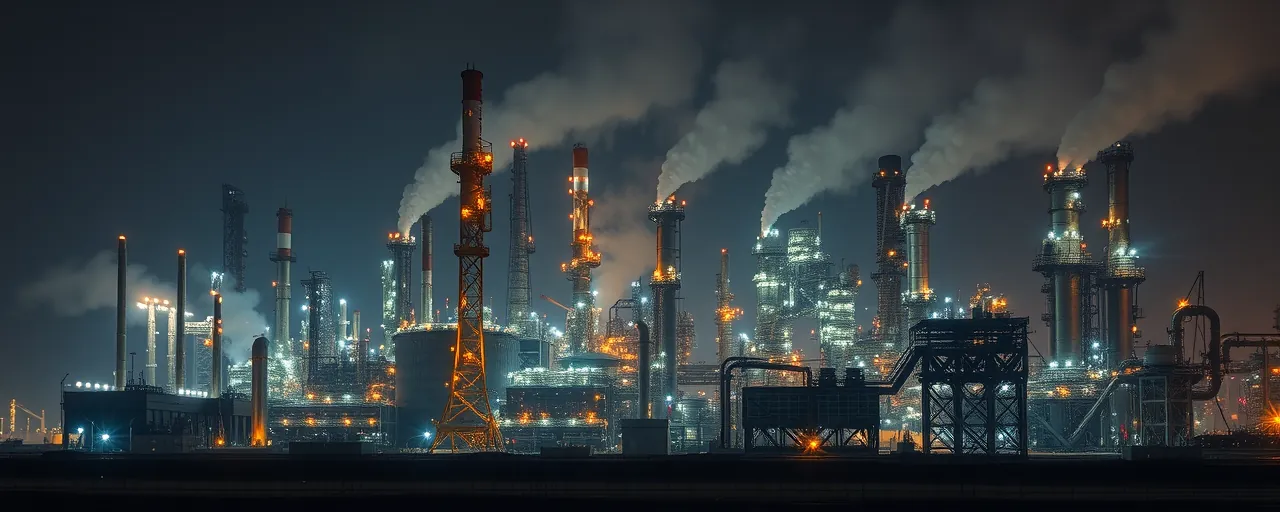New Pressure on Iran's Oil Exports
The U.S. Department of the Treasury has rolled out sanctions to disrupt Iran's oil trade, zeroing in on a Chinese refinery and port operators facilitating millions in crude shipments. This latest move aims to curb funds that Washington links to Iran's regional influence, highlighting a persistent clash between global trade and economic restrictions.
Hebei Xinhai Chemical Group, a refinery in China's Hebei Province, now faces penalties for purchasing Iranian oil, often delivered by hard-to-track vessels. Three Shandong Province port operators are also targeted for handling similar shipments. These actions reflect the Treasury's push to dismantle a sprawling network that sustains Iran's oil exports despite international barriers.
The Elusive Shadow Fleet
Iran relies on a shadow fleet of tankers to keep its oil flowing. These aging vessels, often flying obscure flags, use tactics like disabling tracking systems and transferring cargo at sea to evade detection. Ships like the STAR TWINKLE 6 and IMPALAS, recently sanctioned, have moved millions of barrels to China, bypassing global oversight.
This hidden trade shakes up global markets. Untracked oil volumes distort pricing, contributing to Brent crude surpassing $100 per barrel last year amid supply fears. Higher shipping costs and insurance premiums for Middle East routes further strain markets, affecting everything from fuel prices to economic forecasts.
The Case for Sanctions and the Pushback
Washington contends that slashing Iran's oil income, cut by over half since 2018, curbs its ability to fund nuclear programs and regional proxies. Data backs some impact: Iran's GDP has contracted by 15 percent, and daily oil exports have fallen from 2.5 million to 1.2 million barrels. Advocates argue these measures pressure Tehran to rethink its policies.
However, doubts persist about their success. Iran has pivoted to China, which buys most of its oil, and honed evasion strategies. Some analysts and diplomats highlight the human cost, noting that sanctions drive up informal work and erode living standards for ordinary Iranians. They propose diplomatic paths, like revisiting the 2015 nuclear agreement, to foster stability with less harm.
China’s Complex Role
China, Iran's largest oil buyer, plays a pivotal role. With $65 billion in trade in 2024 and a long-term cooperation deal, Beijing secures discounted oil while carefully navigating U.S. sanctions through third-party channels. Yet, its investment in Iran remains limited, reflecting a cautious balance between economic gain and global pressure.
The sanctions on firms like Hebei Xinhai aim to disrupt this trade. Some Chinese refineries have halted Iranian crude imports to avoid U.S. repercussions, but the deep ties between Beijing and Tehran suggest that fully stopping this flow is a steep challenge.
What Lies Ahead
These sanctions will likely raise costs for Iran's oil trade, squeezing its economy further. For global markets, the risk of supply disruptions could push fuel prices higher, while producers like Saudi Arabia adjust to stabilize supply. The ripple effects touch consumers worldwide, from gas pumps to grocery bills.
Debate over sanctions intensifies, with some viewing them as essential to counter Iran's actions and others warning of their toll on civilians. The choice between sustained pressure and renewed diplomacy will shape not just trade and markets, but the lives of millions navigating the fallout.
As this unfolds, the global community grapples with balancing security, economic stability, and human well-being in a deeply interconnected world.
